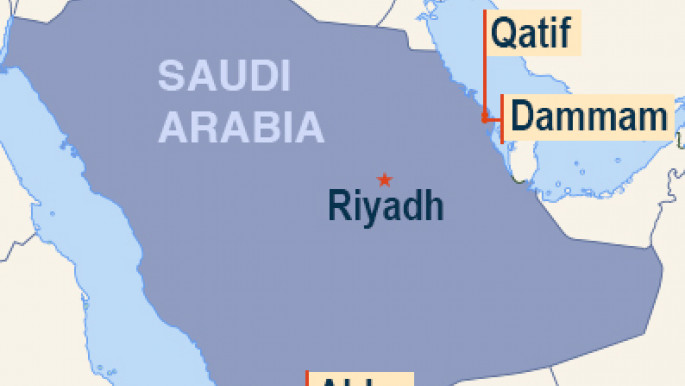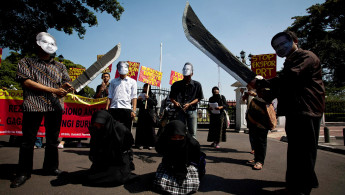Saudi Arabia executes 137th person this year, plans more
Saudi Arabia on Thursday carried out its 137th execution this year, putting to death another of its citizens convicted of murder.
Mohammed al-Qahtani had been convicted of gunning down a fellow Saudi with an automatic weapon in an argument, the interior ministry said in a statement.
Most executions in the kingdom are carried out by beheading with a sword, in what the ministry says is a deterrent.
But rights experts have raised concerns about the fairness of the trials.
 |
|
Qahtani was the 137th Saudi or foreigner put to death by the kingdom this year, compared with 87 in 2014.
He was executed in Riyadh.
London-based Amnesty International said Saudi Arabia had the world's third-highest number of executions last year, far behind China and Iran, but ahead of Iraq and the United States.
Under the kingdom's strict legal code, murder, drug trafficking, armed robbery, rape and apostasy are all punishable by death.
Prosecutors seek execution for 16 more
Meanwhile, prosecutors in Saudi Arabia are seeking the death penalty for 16 people for alleged "terrorist" offences in a Shia community in the kingdom's east, reports said Thursday.
A total of two dozen people are accused in the case, including three who were on a list of 23 suspects wanted after pro-reform protests that began in early 2011 in eastern Saudi Arabia.
Saudi media said the "terrorist cell" was based in the Shia community of Awamiya.
Most of the Sunni-dominated kingdom's Shia Muslims live in the east, and have complained of marginalisation.
The interior ministry has reported sporadic gun battles and arrests in Awamiya, near Dammam on the Gulf coast, since it issued the list of suspects in January 2012.
Charges against the 16 accused include murder and wounding of security personnel, rebellion, robbery and using grenades, newspapers reported.
The prominent Makkah and Okaz dailies said prosecutors want the bodies of two of the accused publicly displayed on poles after death.
The Berlin-based European Saudi Organisation for Human Rights said seven people had been sentenced to death in connection with Shia unrest since 2011.
It says three were under the age of 18 at the time of their detention, and they have now exhausted all legal appeals.
Their fate rests with King Salman who, activists say, must give final approval before death sentences are carried out.
The case of one Shia youth, Ali al-Nimr, has raised particular international concern.
During a visit to Riyadh last week, French Prime Minister Manuel Valls told reporters he "called for clemency" for Ali al-Nimr, a member of the minority Shia community on death row.
Nimr was just 17 when arrested in February 2012 after attending a demonstration inspired by the Arab Spring.





 Follow the Middle East's top stories in English at The New Arab on Google News
Follow the Middle East's top stories in English at The New Arab on Google News

![Israeli forces ordered bombed Gaza's Jabalia, ordering residents to leave [Getty]](/sites/default/files/styles/image_330x185/public/2176418030.jpeg?h=a5f2f23a&itok=_YGZaP1z)
